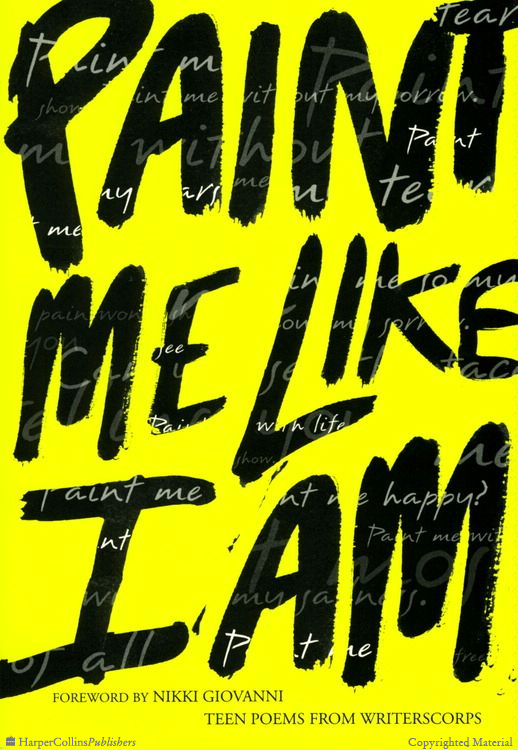by Michelle Grace-Williams and Julia López-Robertson, University of South Carolina
One essential strategy for eliciting meaningful engagement with children’s literature featuring Blacks is simply to share the literature (Harris, 1997, p. 49).
Over the next few weeks we aim to critically discuss texts that could be used in the classroom to validate the experiences of children of the African Diaspora; Black children of African ancestry located in the United States of America, the Americas and other parts of the world.
We believe that all children should be exposed to a wide range of texts both in and out of their cultural experiences. As posited in the opening quote, educators can engage Black students [in particular] in their lessons by exposing them to literature that portrays Black experiences positively. Through the blog, we will be providing educators needed support in locating texts that could make a difference in their classroom. We will be sharing texts that may be useful in exploring and addressing broader socio-cultural issues that could help educators create a more equitable classroom. These texts however, are not to be seen as a prescribed list of texts that would work with all Black children since culture is fluid and ever-changing (Gay, 2010). Selecting culturally relevant texts, texts that are written “by and about people of color” (Harris, 1997, p. 5), could help to transform the lives of Black children in spaces where they are marginalized. This transformation may be manifested in the development of a positive self-esteem and critical consciousness about issues surrounding race in the society and the maintenance of cultural competence (Ladson-Billings, 2009).
During my childhood days in Jamaica, I (Michelle) was exposed to the aesthetic and the sometimes trangressive aspects of poetry. By the latter I refer to certain aspects of a poem that seem to speak against social injustices and encourage people to take a stand against them. In primary school I can recall reciting the poem, Ballad of Sixty Five by Alma Norman, as part of a Choral Speaking Presentation prepared for parents. The poem spoke about a slave rebellion in St. Thomas, Jamaica, led by the slave Paul Bogle who is now hailed as one of Jamaica’s National Heroes. Other poetic works written by Claude McKay, a Jamaican poet involved in the Harlem Renaissance, and Bob Marley’s Redemption Song, helped to raise my critical consciousness then and shape my current interest in equitable education for children of color.
One means of creating equitable education for marginalized children is to honor their voices (Nieto, 1996) by allowing them to tell stories about their own experiences, concerns and identities-what we refer to as poetic works. Inviting students to share these personal experiences is a significant instructional approach as critically aware children could use these poetic works to speak against injustices in society and also help raise the critical consciousness of other children.
The poem Paint Me Black by Natriece Laynette Spicer (excepted below) calls for a celebration of the identity, culture and historical experiences of Black children and youth:
Paint me Black. Paint me.
Me, Black, the most authentic thing you can see.
Paint me Black ‘cause I don’t want anything to change my shade…
Paint me Black ‘cause I’ve stories other colors haven’t told.
The poem invites children in the African Diaspora [in particular] to think more deeply about the socio-cultural issues that pervade their lives while celebrating their Blackness. Significantly it can also help these children to challenge how they are represented in texts since the crux of the poem seems not only to be a celebration of Black experiences but also a call for the authentic representation of these experiences.
In the struggle for social justice for children of the African Diaspora this kind of valuing is integral because research has revealed that “dysconscious racism, an uncritical habit of mind that justifies inequity and exploitation by accepting the existing order of things as given” (Ladson-Billings, 2009, p. 35) in schools could affect the quality of education that they receive. By inviting children to engage in poetry that paints their experiences in a positive light, educators can learn instead to disrupt the status quo in schools that focus on one way of knowing. Macedo (2006) refers to this as the practice of “stupidification” (p. xii) in schools. He contends that “As schools and other institutions fragment knowledge and deny contextual understanding, students find their ability to make connections between school information, their lived worlds, and relations of power and privilege more and more difficult” (p. xii).
As you move forward in your work with children of the African Diaspora we invite you to ponder the following questions: What could you do as an educator to meet your school’s standards while still validating these students in your classroom? What kinds of texts are you currently using in your classroom or school? Do they portray Black experiences? Are the portrayals positive and authentic? If not, what could you do to address this issue at your school?
References
Aguado, B. & Newirth, R (2003). Paint me like I am. New York, NY: HarperCollins.
Gay, G. (2010). Culturally responsive teaching. (2nd.ed.). New York: Teachers College Press.
Harris, V. (1997). Children’s literature depicting Blacks In, V. Harris (Eds.), Using multiethnic literature in the K8 classroom (pp. 21-58). Norwood, MA: Christopher-Gordon Publisher, Inc.
Ladson-Billings. (2009).The Dream-Keepers. San Francisco, CA: John Wiley &Sons Inc.
Macedo, D. (2006). Literacies of power: What Americans are not allowed to know. Cambridge, MA: Westview Press.
Nieto, S. (1996). Lesson from students on creating a chance to dream. Working together toward reform. Harvard Educational Review, 64 (4), 77-113.
Journey through Worlds of Words during our open reading hours: Monday through Friday 9 a.m. to 5 p.m., Saturday 9 a.m. to 1 p.m. Check out our two online journals, WOW Review and WOW Stories, and keep up with WOW’s news and events.
- Themes: Julia López-Robertson, Michelle Grace-Williams
- Descriptors: Books & Resources, Student Connections, WOW Currents

